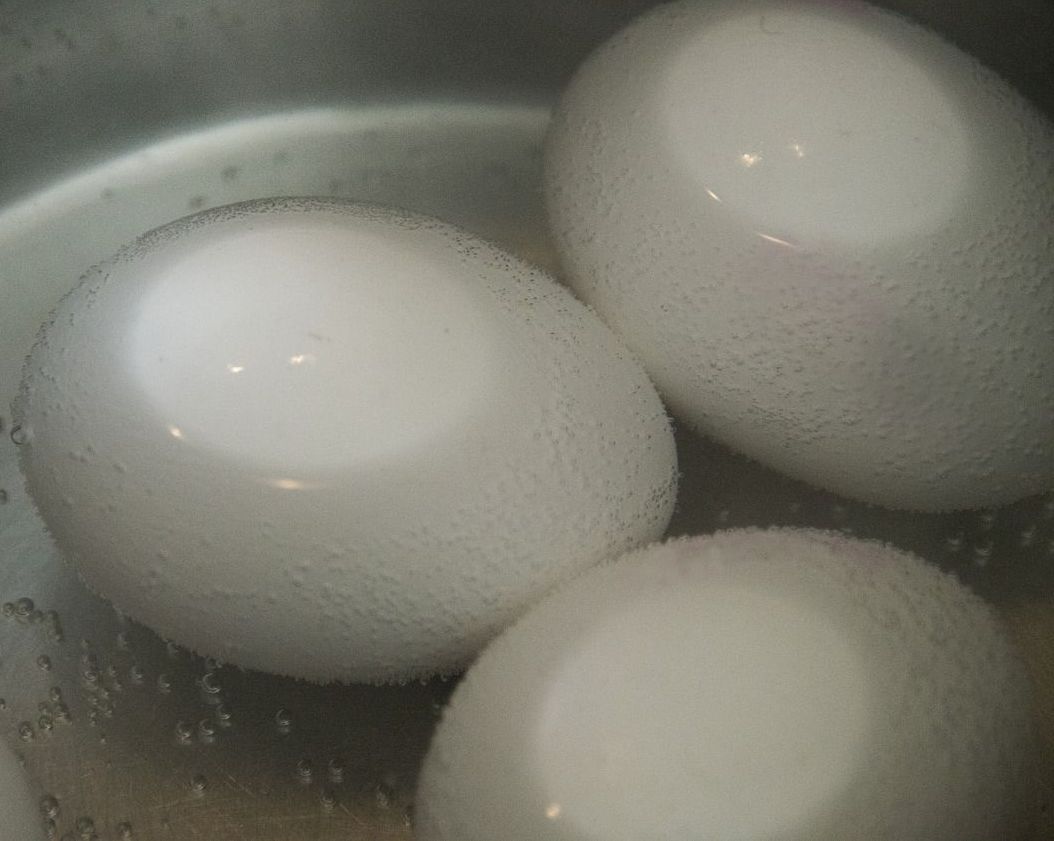
Peel a boiled egg, break it open, and you will detect the distinct boiled eggs sulfur smell. Now foods do not contain sulfur (symbol S) in its elemental form. Rather, they contain compounds that include sulfur in their composition. What sulfur-containing compounds do we find in hen’s fruit? In themselves, they are nutritious—even essential—compounds.
Boiled Eggs Sulfur Smell: Amino Acids
Eggs contain proteins such as albumin. Proteins are amino acids that have joined together. Amino acids are nutritious chemicals that contain nitrogen. Most amino acids do not contain sulfur. However, two do contain sulfur in addition to nitrogen—methionine and cysteine. In fact, they contain nitrogen and sulfur in equal amounts. The chemical formula of methionine is C5H11NO2S. Cysteine is C3H7NO2S.
Boiled Eggs Sulfur Smell: Vitamin B1 Thiamin
The human body does not produce its own thiamin. Only plant life produces it. This sulfur-containing vitamin is essential to life. Deficiencies can lead to serious ailments, including beriberi. Thiamin, like proteins and their constituent component amino acids, contains nitrogen. Its chemical formula also includes sulfur: C12H17N4OS+.
Is Sulfur Bad for You?
Although some consider eggs, at least in any sizable quantity undesirable in their diet, sulfur is essential to human existence. Other foods rich in sulfur such as onions and garlic—are openly acknowledged excellent dietary supplements. Boiled eggs contain about 180 milligrams sulfur in a 55-gram egg. This translates roughly to 1/3 of 1 percent.
Note: You might also enjoy Instant Pudding Thickening Chemistry